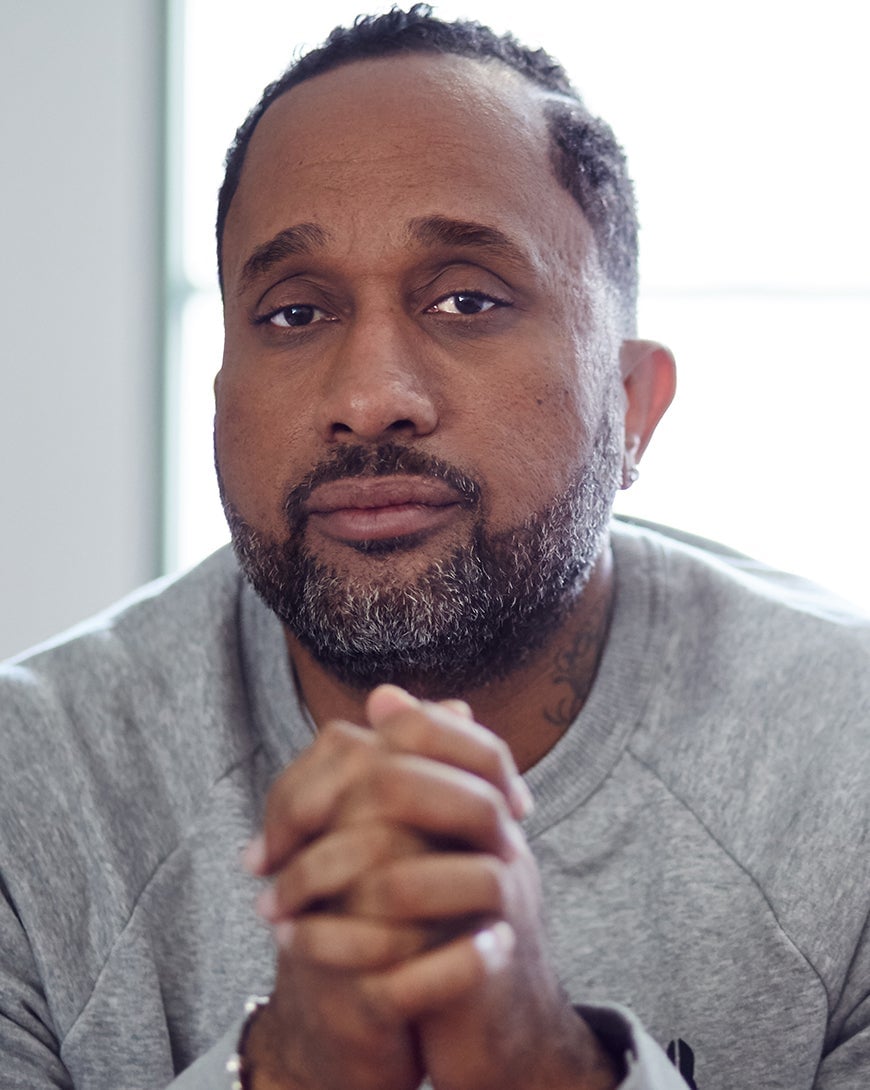“Black-ish” creator Kenya Barris says American men will cause their own downfall
It may have come as a surprise to Hollywood’s old guard when Girls Trip, the underestimated 2017 comedy starring Tiffany Haddish, Jada Pinkett Smith, Regina Hall, and Queen Latifah became the first black-led movie to cross $100 million at the box office.


It may have come as a surprise to Hollywood’s old guard when Girls Trip, the underestimated 2017 comedy starring Tiffany Haddish, Jada Pinkett Smith, Regina Hall, and Queen Latifah became the first black-led movie to cross $100 million at the box office.
For Kenya Barris, the film’s co-writer, the success of a story about black female friendships was unsurprising. Rather, he thought, it was about time.
When Girls Trip came out in 2017, Barris had already been championing black-led productions for decades. The 44-year-old grew up idolizing the Cosby Show, and by his early 20s he’d begun writing, producing, and directing a number of hit films and TV shows including Barbershop: The Next Cut, America’s Next Top Model, The Game, and Girlfriends.
In 2014, Barris created Black-ish, the critically acclaimed TV series about a black family in modern, suburban America, in which Andre, played by Anthony Anderson, is a father of four struggling with the impact of his success on his family’s cultural assimilation.
Like Andre, Barris is married to a biracial woman named Rainbow, and is raising his children in an affluent neighborhood that’s drastically different from Ingelwood, California, where he was born.
Speaking with Quartz, Barris lays out the business case for films created by and starring women of color and explains why he’s anxious about raising daughters and sons in America at the same time.
1. Did you actively think about workplace gender inequality prior to the Me Too movement?
I always felt that it was really important to have voices that represent a true sampling of society. Particularly in the case of minority writers, I find that women, no matter what their ethnicity, offer an interesting outsider’s point of view that often adds a new perspective to story and character. I think it’s important to have an open forum for everyone to speak about how they are feeling in the workspace.
2. Do you identify as a feminist? Why or why not? How do you define your feminism?
Yes. I think that everyone should identify as a feminist since women are half the population. I define my feminism through my humanity. I think the idea that someone has to explain or defend themselves based upon their gender is ridiculous.
3. What do you do on a daily basis to advance gender equality?
I try to be honest and I try to let others be honest with their opinions. I also keep myself open to hearing both sides and try to encourage others to keep themselves open so that the conversation can advance in a productive and sincere way.
4. What’s the biggest threat to men in America today? Why?
The biggest threat to men in America is themselves. I say this because there has been a lack of gender checking that has created a loose and reckless environment for men, which, if it’s not changed, will lead to their ultimate demise.
5. Do you talk about sexism with your male peers? If so, what strategies prove most effective, and if not, what inhibits you from doing so?
I do talk about sexism. But I often find with my male and female peers there has become a party line, and if your thoughts or ideas don’t fall within those party lines, the conversation can disintegrate into an argument. The best strategy on having conversations about sexism, racism, and all the other “-isms” is to allow yourself to exit a conversation differently than how you entered and to be open to others having a contrary point of view.
6.What is your biggest anxiety about being a man?
My biggest anxiety about being a man comes from being a father who is raising daughters while at the same time raising sons. In the environment that we’re currently living in, there has been a men vs. women chorus of commentary that I feel has pitted two allies against one another in a unnecessary and unhealthy way. It shouldn’t be men against women or vice versa; it should be everybody against monsters.
7. What do you wish your female coworkers, and women at large, knew about you?
They know exactly what they need to know. Anything more could be dangerous!
8. Some men feel like they can’t win: They’ll be criticized by men for speaking up, and by feminists for not speaking loud enough. What would you tell these men?
I would tell them to realize that they’ve won long enough and that however unfair they find it, right now it’s time for them to maybe keep their mouth closed and listen a little more. My grandmother used to have a saying: “God gave you two ears and one mouth.” That was God’s way of saying you should listen twice as much as you speak.
9. If you could take back one thing you’ve said or done that contributed to bias at work or at home, what would it be? Why?
There are too many things to name. I’m constantly in a learning mode. Every day I’m finding out more things I need to know to create a better work environment.
10. What’s the best advice you’ve received from another man, and what’s your best advice for young men today?
I think the Golden Rule always becomes my best advice. It’s actually the only rule that we really need. When you really break it down, if we all “Did unto others as we would have them do unto us”— imagine what kind of world we’d live in.